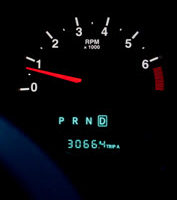What Is Odometer Fraud?

Odometer fraud is one of the lesser known tactics used by used car dealerships to convince potential buyers that a car is newer than it actually is. Odometer fraud covers a wide range of activities, but is generally defined as the illegal act of changing or altering the mileage readings on a vehicle. Also known as odometer rollback, this type of fraudulent activity is a felony offense, so if you purchased a car and have reason to believe that the seller committed odometer fraud, it is critical to consult with an experienced used car fraud attorney who can help you seek compensation for your losses.
Examples of Odometer Fraud
Odometer fraud can be performed in a number of different ways, but usually involves:
- Disconnecting and resetting the odometer;
- Altering the numbers; and
- Replacing the odometer without providing notice to potential buyers.
This type of behavior is much more common than most people know. In fact, the National Highway Traffic Safety Administration estimates that as many as 450,000 vehicles are sold with false odometer readings every year, costing American buyers more than $1 billion annually.
Detecting Odometer Fraud
It is often difficult to detect whether a car’s odometer has been altered. Fortunately, it is possible, so those who are in the market for a used vehicle are encouraged to take the following steps:
- Request the title and compare the mileage with the odometer;
- Compare the odometer reading with the mileage indicated on maintenance and inspection records;
- Keep an eye out for oil change and maintenance stickers on windows and in the glove box;
- Make sure that the numbers on the gauge are aligned correctly, as crooked numbers or gaps are usually indicative of odometer fraud;
- Examine the tires, as cars with 20,000 miles or less should have original tires;
- Check the wear and tear on the brake, gas, and clutch pedals to ensure that it is consistent with the number of miles displayed; and
- Request a vehicle history report to check for discrepancies in the car’s history.
Digital odometers that have been altered are even harder to detect because they have no visible moving parts, so it is especially important for purchasers in these cases to review a vehicle’s history report. Sellers who are involved in this type of fraudulent activity usually commit other unlawful actions, so buyers should also remain vigilant for signs that the title has been altered, forged, or replaced.
Federal Law
Under federal law, a written disclosure of the mileage registered on an odometer must be written on the title by the seller when a car is transferred, although cars that are ten years old or older are exempt from this requirement. When consumers can provide evidence that their odometer was tampered with they stand to collect restitution from the seller for the cost of the vehicle and legal fees.
Speak with an Experienced Philadelphia Used Car Fraud Lawyer
To schedule a free consultation with a dedicated used car fraud attorney who is well-versed in both state and federal law, please contact Louis S. Schwartz at CONSUMERLAWPA.com at 215-790-1800 today.
Resource:
nhtsa.gov/equipment/odometer-fraud


